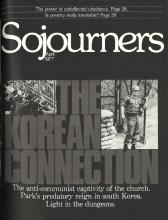The Swiss Alain Tanner’s French-language film is a fable for the post-sixties. It brings together the life-threads of eight characters who have been forever changed by the 1968 student revolution, in whom the roots of protest have twisted down deep and then sent shoots breaking up through the mundane sidewalk again. The greening takes different forms--insistence on organic gardening, eroticism according to the Tantra, devotion to animal life. Indeed, these individuated forms of revolution are the story of what happened to protest in the seventies.
To Max, a disillusioned Trotskyite played by Jean-Luc Bideau, these alternatives are poor substitutes for social change, “Nothing changed after the movement,” he complains. “Every thing is just crazes and fads. I see only Kissinger circling the globe.”
But as the expression of humans breaking away from societal institutions, the film loses some of its pure cinematic virtue and becomes tainted by the director’s didactic impulse. Set in Geneva, the film uses frequent shots of a statue of utopian Rousseau, and sprinkles the script with quotes from Piaget, Octavio Paz, Pablo Neruda, and the like--to the extent that bibliographic citations are run with the credits.
Tom Stoppard’s plays Travesties and Jumpers suffer from this same non-dramatic conflict of interests. The characters talk too much--much too much. They talk positions at each other instead of acting and interacting. The characters do not really affect each other; there is no chemistry, thus no community.
Read the Full Article

